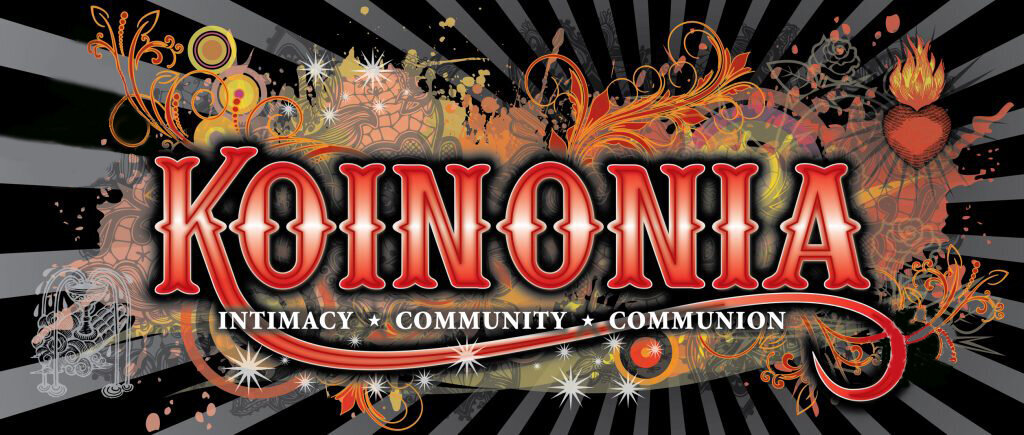Today’s New Covenant nugget is from Acts 2:42
And they continued steadfastly in the apostles’ doctrine and fellowship, in the breaking of bread, and in prayers.
I make it a practice to seek the Lord for a FRESH word each day and do not repost a devotion UNLESS clearly directed to do so by the Lord… this is one of those occasions. This is a devotion from a few years ago that the Lord has freshly anointed for today… enjoy!
At Pentecost, Peter, filled with power preached the gospel to the Jews… that day three thousand responded to his message and got saved, and so the church era began… what they did next led to an explosion of growth, changed lives, power, miracles, signs and wonders. The bible narrows down what they did into four principle things… devoting themselves to the apostles teachings, to fellowship, to breaking of bread (holy communion) and to prayer.
Out of the four things, being taught the Word is listed first, then fellowship, or ‘koinonia’ is listed second… koinonia includes holy communion and prayer
Fellowship, or ‘koinonia’ is the glue that unifies us in strength and in the power of His might. God has called us to be a ‘body’ of believers, not independent lone rangers.
These newly baptized believers ‘devoted’ themselves fellowship (koinonia)… they made it a devoted priority!
What Is the Meaning of Koinonia?
While there is no exact translation in English, koinonia is a Greek word most closely associated with concepts of ‘holy fellowship’. Joseph Henry Thayer’s Greek-English Lexicon of the New Testament defines it as “fellowship, association, community, communion, joint participation.” Its origin is in the Greek word ‘koinonos’, which means partner, sharer, and companion. In short, it is a shared community that involves deep, close-knit participation among its people.
While some are tempted to substitute the word “fellowship” for koinonia, it’s far deeper. Fellowship is a more surface-level, friendly relationship, while koinonia is full, intimate unity. It is an important element in the New Testament particularly, as the apostles became filled with the Holy Spirit and then helped establish the first communities of new believers, who shared not only in the Spirit, but also in all aspects of life together.
The concept of communion is exemplified in koinonia. Communion, which means sharing, also represents the communion Christ offered the disciples in sharing His body and blood during the Last Supper, a covenant practice of worship that Christians around the world do today as they step into Jesus’ New Covenant by faith.
In the Last Supper, Jesus offered bread as His own body, “given for you,” and then His blood in the wine, calling it “the New Covenant in My blood, which is poured out for you” (Luke 22:19-20). Later, the apostle Paul reminds early Christians that this act, too, is a part of koinonia, as those who partake are one body all sharing one loaf…
1 Corinthians 10:16-17 - “The cup of blessing which we bless, is it not the communion of the blood of Christ? The bread which we break, is it not the communion of the body of Christ? For we, though many, are one bread and one body; for we all partake of that one bread.”
7 Ways Christians Can Implement Koinonia Today…
Christians don’t need to live in a communal home in order to live out koinonia today, but it’s far more than chatting over coffee and doughnuts after worship. It’s modeling the love Jesus extended to us. As Jesus told the disciples in John 13:34, “As I have loved you, so you must love one another.” We can serve each other with our spiritual gifts as a form of love, and we can also offer more practical, concrete love.
1. Spiritual gifts: Serving each other with our spiritual gifts is one key way we can be the full body of Christ today. As Peter wrote, “Each of you should use whatever gift you have received to serve others, as faithful stewards of God’s grace in its various forms” (1 Peter 4:10). Paul expanded on this, noting, “We have different gifts, according to the grace given to each of us. If your gift is prophesying, then prophesy in accordance with your faith; if it is serving, then serve; if it is teaching, then teach; if it is to encourage, then give encouragement; if it is giving, then give generously; if it is to lead, do it diligently; if it is to show mercy, do it cheerfully” (Romans 12:6-8).
2. Hospitality: We can be hospitable to each other, offering food, clothing shelter, and more.
3. Togetherness: We can gather together for worship, Bible study, small group gatherings, sharing holy communion, prayer, meals, and fellowship.
4. Acceptance: We can accept and include each other, embrace each other and support each other even when one among us is weak in faith or unstable in their walk with the Lord.
5. Encouragement: We can encourage and support each other, as well as hold each other accountable when necessary.
6. Service: We can serve each other in practical ways like watching each other’s children, or providing a meal when someone is sick or otherwise unable and more…
7. Sharing our abundance: We can share our abundance with each other and the church through our tithes and offerings so that God’s good work may be done in the world.
By doing these things, we bring God and others into full unity with ourselves, pushing aside our own selfish concerns to embrace harmony and generosity in one accord. It might be tough to embrace the concepts of koinonia in such a ‘self-oriented’ world, but we are called repeatedly to do so, and we are given an ideal model, both in Jesus and in the disciples.
In His amazing love, Nick





